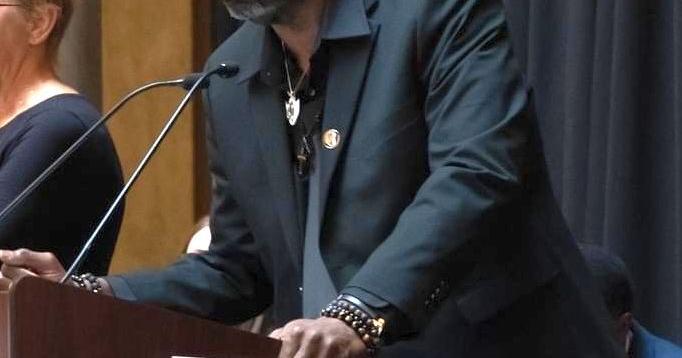
By Kaye Kory
A decade ago, I established the Virginia Women’s Health Care Caucus in the Virginia General Assembly. I created this caucus because I knew the obstacles women across Virginia had to go through in order to access the care they need and that change required coordinated efforts from lawmakers and advocates to get things done.
One focus of our caucus was improving access to affordable and quality healthcare, particularly through Medicaid. As Virginia began the year-long Medicaid unwinding process in April – which was incidentally Medicaid Awareness Month – it has become even more important to share how Medicaid has transformed the lives of women across Virginia and how we have strengthened the program over the last few years.
Many of us can remember the historic nature of 2020 when I joined my colleagues in electing my long-time friend Delegate Eileen Filler-Corn as Virginia’s 56th Speaker of the House of Delegates. She made history as the first woman and first Jewish-American to hold the position in Virginia’s over 400 year legislative history. What some of us forget to mention is that, under her leadership, we passed one of the most transformative budgets in Virginia’s history that included many of the priorities the Virginia Women’s Health Care Caucus had been working to advance for years.
The budget approved in 2020 included funding to extend postpartum care for women in low-income women in Medicaid from 60 days to a full year. This is a transformative policy decision approved by the legislature that is currently improving health outcomes for new mothers and their children. That same budget also removed the harsh 40 quarter work requirement for legal permanent residents to be eligible for Medicaid. For many immigrant women, this additional barrier meant they would go without care for a minimum of 10 years and meant that at any moment, a health issue could lead to bankruptcy. We also finally added dental coverage, which many experts cite as important for maternal health because there is link between oral health and preterm birth. As a Delegate who represents a district with many new mothers and new Americans, I can see the impact these policy decisions continue to have on my constituents today.
Subsequent budgets passed by the legislature have continued that progress we started in 2020 of improving access to health care by increasing reimbursement rates for services coverage by Medicaid, expanding prenatal coverage regardless of immigration status, and more. In a few years, much of the legislative goals of the Virginia Women’s Health Care Caucus were achieved thanks to the tireless work of advocates and the legislative leadership of former Speaker Filler-Corn.
I celebrate these victories and the role I played in laying the groundwork for many of these policy wins because I know that I have transformed the lives of many because of the votes I cast over the last few years. I also know that there is still much work to be done on protecting and strengthening Medicaid in Virginia and across the country.
Republicans in Congress are threatening to gut Medicaid and cut coverage for millions of families, including here in Virginia as they hold the budget hostage. Here at home, there is also a lack of planning regarding a 12 month Medicaid redetermination process known as Medicaid “unwinding” that could disproportionately impact immigrant women, Black women, and more. It is estimated that nearly 172,000 people will lose coverage, despite still meeting the eligibility requirements to stay enrolled in Medicaid. While the legislature has approved some funds for the Virginia Department of Medical Assistance Services and the Virginia Department of Social Services, the two agencies tasked with leading the unwinding process, to provide additional capacity we need a plan to provide targeted outreach to communities who may lose coverage, even though they remain eligible for Medicaid.
Protecting Medicaid and keeping people enrolled is a women’s rights issue. It is a vital tool in our efforts to combat the maternal mortality crisis we are experiencing in Virginia. As I finish my final term in the Virginia House of Delegates over the next few months, I am laser-focused at keeping Governor Youngkin’s administration accountable to ensure my constituents do not lose coverage, particularly those with language or economic barriers that make it harder to stay enrolled in the program.







